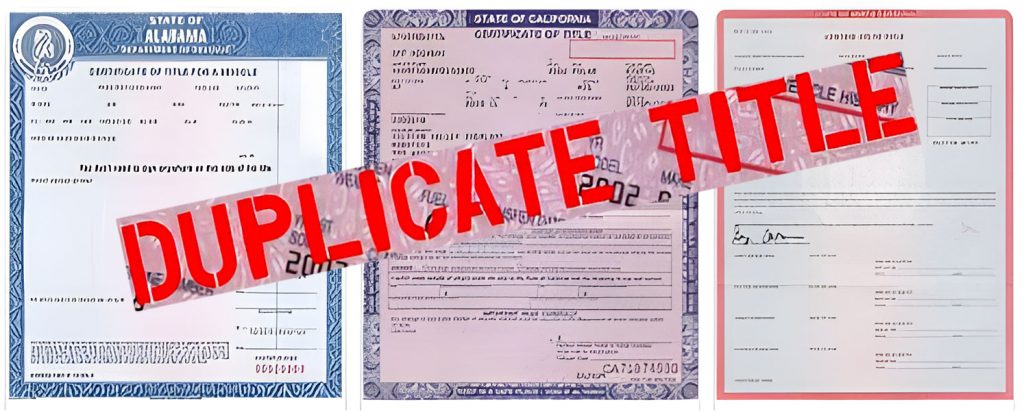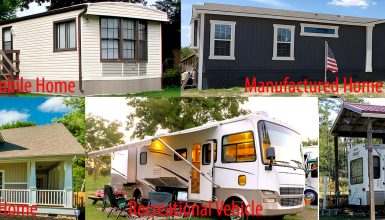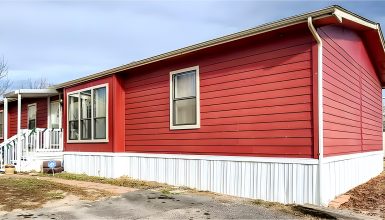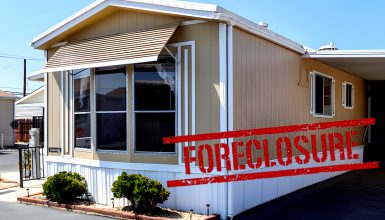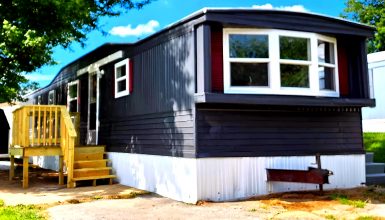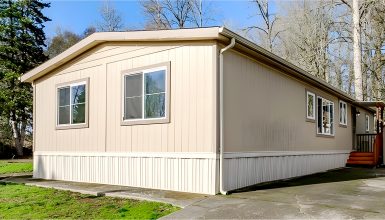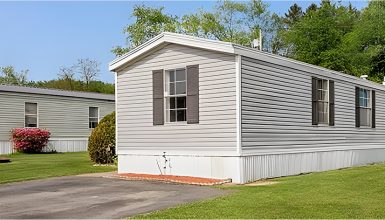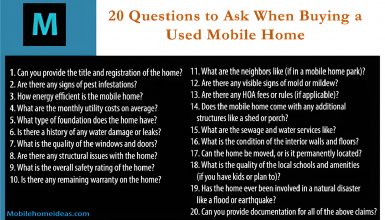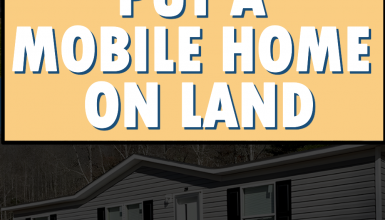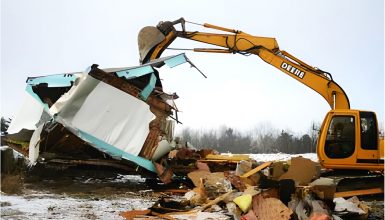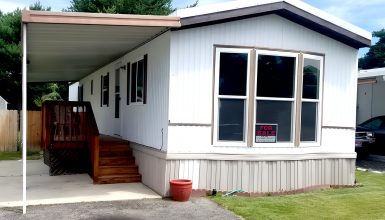Let’s say you’re ready to sell your mobile home. The buyers are excited, and the price is right, but hold on. Where’s the title? Without it, you’re stuck at a standstill because the buyer needs it to take ownership officially. But don’t worry! There’s a backup plan even if your mobile home title’s lost, destroyed, or damaged. You can get a duplicate title and get back on track. It’s like losing your keys but finding a spare! Let’s dive in!
Step | Description |
Determine which department in your state handles mobile home titles. This could be the DMV, Department of Housing, or another department. | |
Gather the necessary documents which usually include the previous certificate of title, identification number, and sometimes outstanding registration documents. Fill out the appropriate application form for a duplicate title. Make sure all information is accurate. | |
Depending on your state, you may need to provide additional documentation like a bill of sale, proof of purchase, notarized statement or proof of identity. | |
The costs associated with replacing a mobile home title. Be ready to pay the fee, which can typically range from $15 to $50 or more. | |
Submit your application online, via mail, or in person, depending on what your state allows. Processing times vary but expect to wait a few weeks for your new title to arrive. |
Mobile Home Title and Liens
Let’s dive into the world of mobile home titles, shall we?
Think of the title as a mobile home’s birth certificate. Just like car titles or property deeds, it’s the official record of ownership. But unlike these, a mobile home title has its unique quirks. It’s a bit of a mix between a car title and a property deed—part vehicular, part real estate. It’s one of the things that make mobile homes so special!
Now, here’s where it gets interesting. Your state might see your mobile home as more car than a house, depending on where you live. Some states say, “Hey, it’s got wheels, so it’s a vehicle!” Others look at the permanent fixtures and say, “Nope, that’s real estate!” Each state has its pair of glasses when looking at mobile homes.
“But what does this mean for me?” you ask. Great question! This classification can change how you go about replacing your lost title. You’ll knock on the Department of Motor Vehicles door in some states. In others, you’ll pay a visit to the Department of Housing. But don’t fret—we’ll guide you on where to go!
Liens
Before we move on, let’s chat about liens. Imagine a lien as a sort of bookmark a lender puts on your mobile home title. If you’ve taken out a loan to purchase your mobile home, the lender might place a lien on the title. It says, “Hold on, this person still owes us money!” The title stays in limbo until you pay off the loan. Then, the lien gets lifted—like a bookmark removed—and the title is all yours again.
Understanding these quirks of mobile home titles is vital to replacing a lost one. And with this knowledge, you’re already well on your way!
How to Get a Lost Title for A Mobile Home
If you’ve lost the title for your mobile home, the specific process to get a replacement can vary somewhat depending on your location, as each state has its own laws and regulations. Below are the general steps you may need to take:
1. Identifying the Appropriate Department
Now that we’ve unraveled the mysteries of mobile home titles, it’s time to figure out which department in your state handles these gems. But how do you find that out? Allow me to guide you through!
Most states designate their Department of Motor Vehicles (DMV) or Department of Housing (DOH) to handle mobile home titles. Remember when we chatted about how some states view mobile homes as vehicles while others see them as property? This is where that comes into play.
Here’s your action plan. If your state classifies your mobile home as a vehicle, your first stop is the DMV. But if your state sees your mobile home as property, you’ll head to the DOH. Click your state below to know.
On a side note, isn’t it amusing that the same office that handles your driver’s license could also be in charge of your mobile home title? Or your home might fall under the same umbrella as city parks and public housing?
Just remember, every state has its rulebook for mobile homes. Understanding your state’s viewpoint can make your journey to replace a lost title much smoother. After all, we don’t want you walking into the DMV when you should be at the DOH, right?
2. Completing the Application for a Duplicate Title
Alright, let’s talk paperwork. I know it doesn’t sound like the most exciting topic, but stick with me here. Completing an application for a duplicate mobile home title doesn’t have to feel like a chore. Let’s break it down together, and soon you’ll be breezing through it like a pro!
The application form might look a bit daunting at first glance, but don’t let it scare you. Essentially, it wants to know who you are and which mobile home is yours. You’ll need to share your home’s basic details—think make, model, serial or identification number—and probably some personal information.
You might wonder, “Where do I find my mobile home’s serial number?” If you’ve kept your original purchase documents or any prior title paperwork, these details will be listed there. If not, the serial number is often found on a data plate inside your mobile home, usually in a kitchen cabinet, bedroom closet, or the electrical panel box. It’s like a mobile home’s secret identity!
When it comes to filling out the form, accuracy is your best friend. Double-check everything. Yes, even your name and address. You’d be surprised how often mistakes can slip through! Be sure to write or type clearly, too. After all, we don’t want your “Baker Street” to be mistaken for “Barker Street,” right?
With these tips, you’re all set to conquer the application. Remember, it’s just a way for the department to better know you and your home. So, fill it out confidently and take one step closer to reclaiming your title!
3. Additional Documentation Requirements
Okay, you’ve completed your application form—way to go! Let’s tackle any additional documents you might need, starting with a notarized statement.
A notarized statement might sound like legal mumbo-jumbo. Still, it’s just a fancy way of saying, “I promise I’m telling the truth.” The notary public is a neutral third party who verifies your identity and watches you sign the document. Then they add their signature and seal. This is your state’s way of ensuring you ask for a new title, not some rascal trying to steal your beloved mobile home!
So, how do you get a document notarized? First, you’ll need to find a notary public. Many banks offer notary services, as do some libraries and UPS stores. Don’t forget to bring a valid photo ID! The notary needs to confirm it’s really you, after all.
Aside from a notarized statement, you might need other documents, too. This could include proof of purchase for your mobile home, previous registration documents, or proof of paid property taxes. It’s like gathering all the ingredients for a recipe—the more complex the dish, the more elements you need.
And just like cooking, having all your “ingredients” ready before you start is crucial. So, pull together all your documents, check them twice, and then you’ll be set to serve up a successful application. Don’t worry. You’ve got this!
4. Fee Structure
So, how much will this set you back? The exact amount varies from state to state, but it typically falls between $15 and $50 or more. Some states might charge a bit more, others a little less. Your local DMV or DOH will have the specifics, so check their websites or give them a ring.
Once you know the amount, it’s time to talk about payment. Most departments accept checks, money orders, or debit and credit cards. However, some might have unique rules about how to pay—like not accepting cash or requiring exact change. So, before you whip out your wallet, check with the department to see what forms of payment they prefer.
Knowing when to pay is simple. The fee usually accompanies your application and additional documentation when you submit them. It’s a bit like buying tickets at a box office—you hand over your money and your order form at the same time.
See? When it comes to fees, there’s no big mystery. Just a straightforward exchange to help secure your ownership rights to your mobile home. Keep up the good work, and let’s march on to the final step!
5. Submitting Your Application
There are usually three ways you can submit your application: online, by mail, or in person. The best method depends on your state’s rules and your preferences.
Choosing to submit online is like buying something from your favorite online store. It’s quick, it’s convenient, and you can do it in your pajamas. If your state allows online submissions, you’ll find instructions on your local DMV or DOH website.
But if you’re more of a snail mail person, that’s fine. Sending your application via mail is like sending a letter to an old friend. It might take a little longer, but it gets the job done. Just make sure to keep copies of everything you send—just in case!
Of course, if you prefer a face-to-face experience, going in person might be your best bet. It’s like taking a trip to the grocery store—you can ask questions, ensure everything is in order, and leave knowing your application is in good hands.
So, you’ve submitted your application. What now? Well, it’s time to wait for a bit. Processing times vary but expect to wait a few weeks for your new title to arrive. It’s like waiting for a package to be delivered—sometimes it’s quick, sometimes it takes a while. Still, the anticipation makes the arrival all the more exciting!

